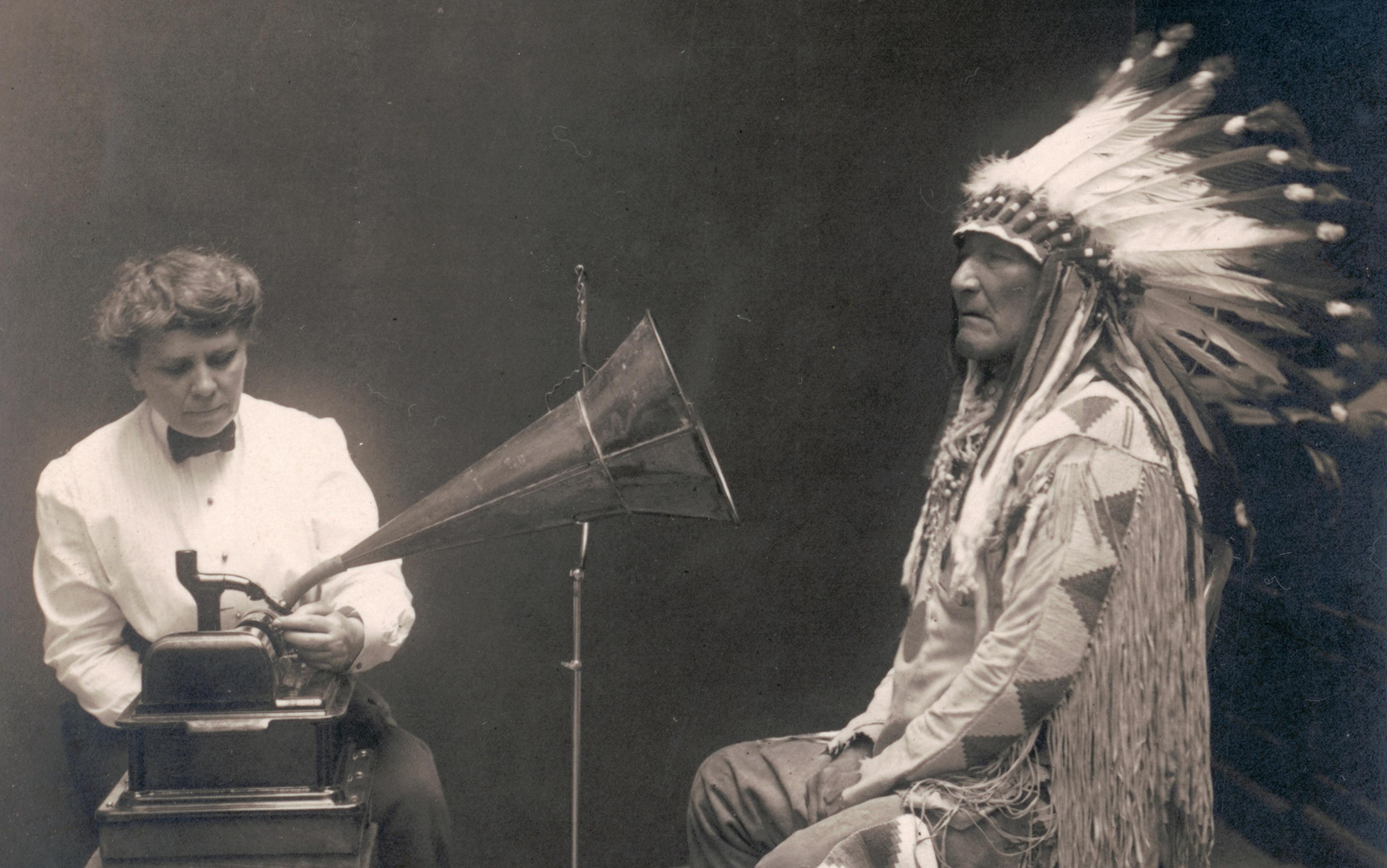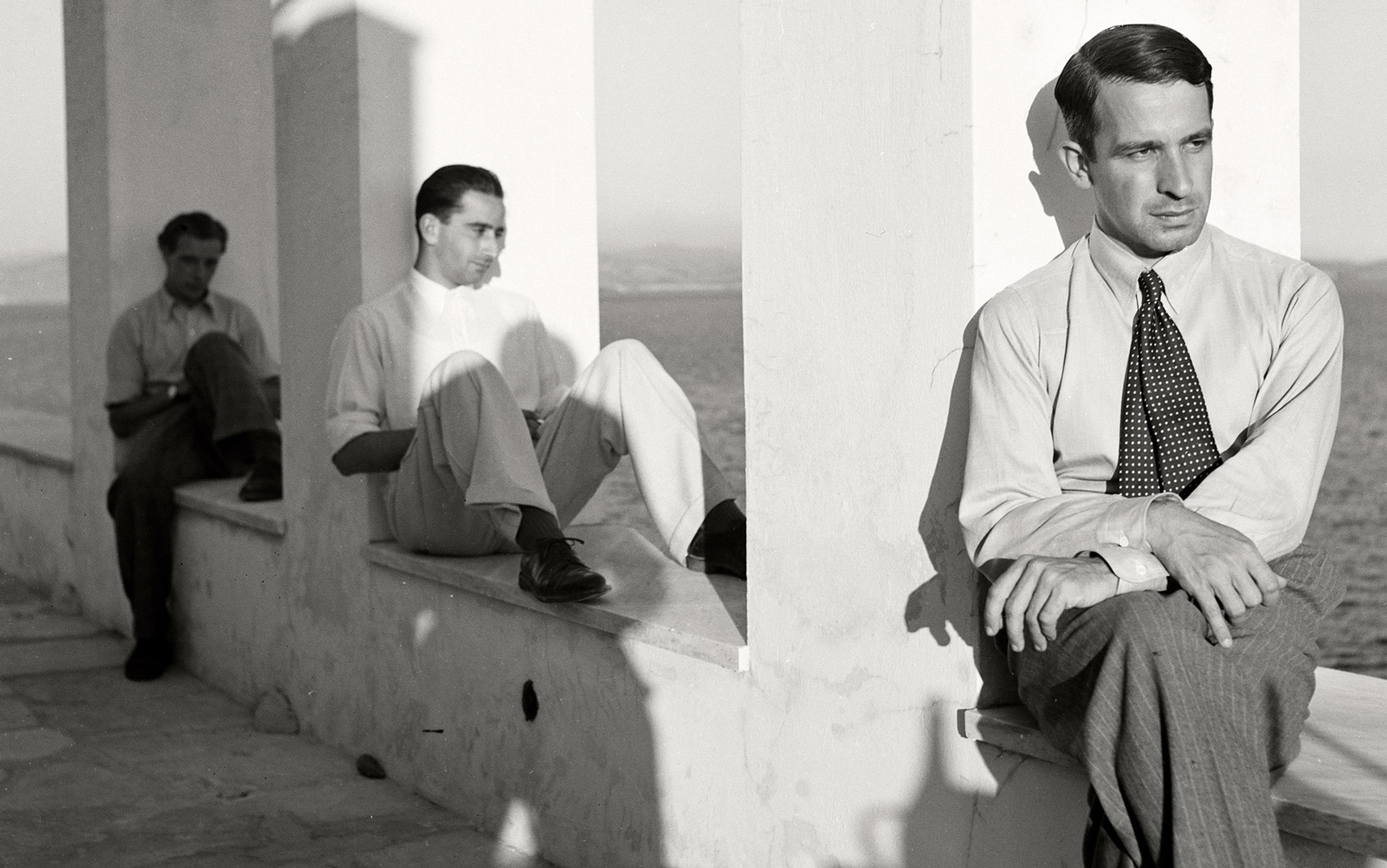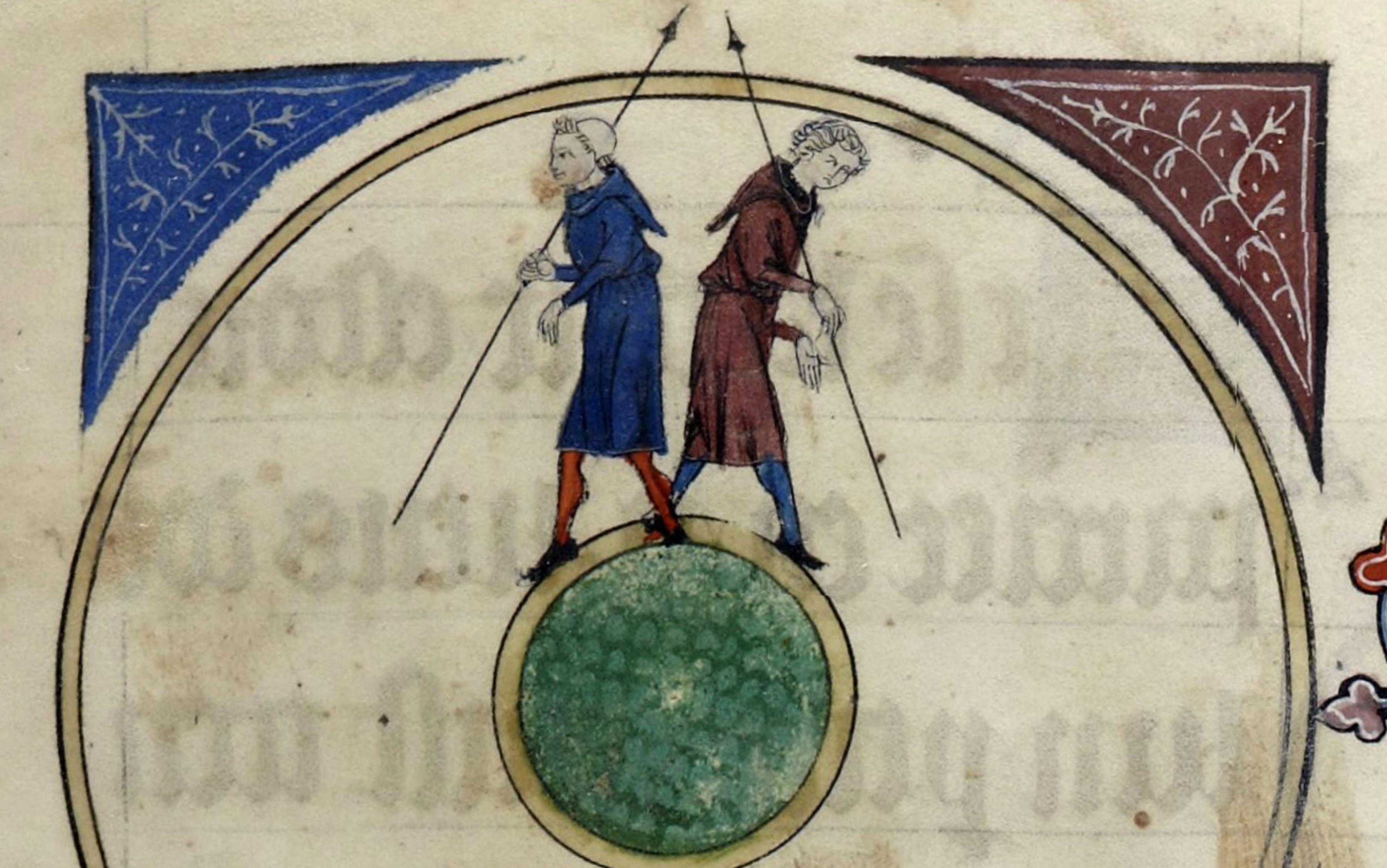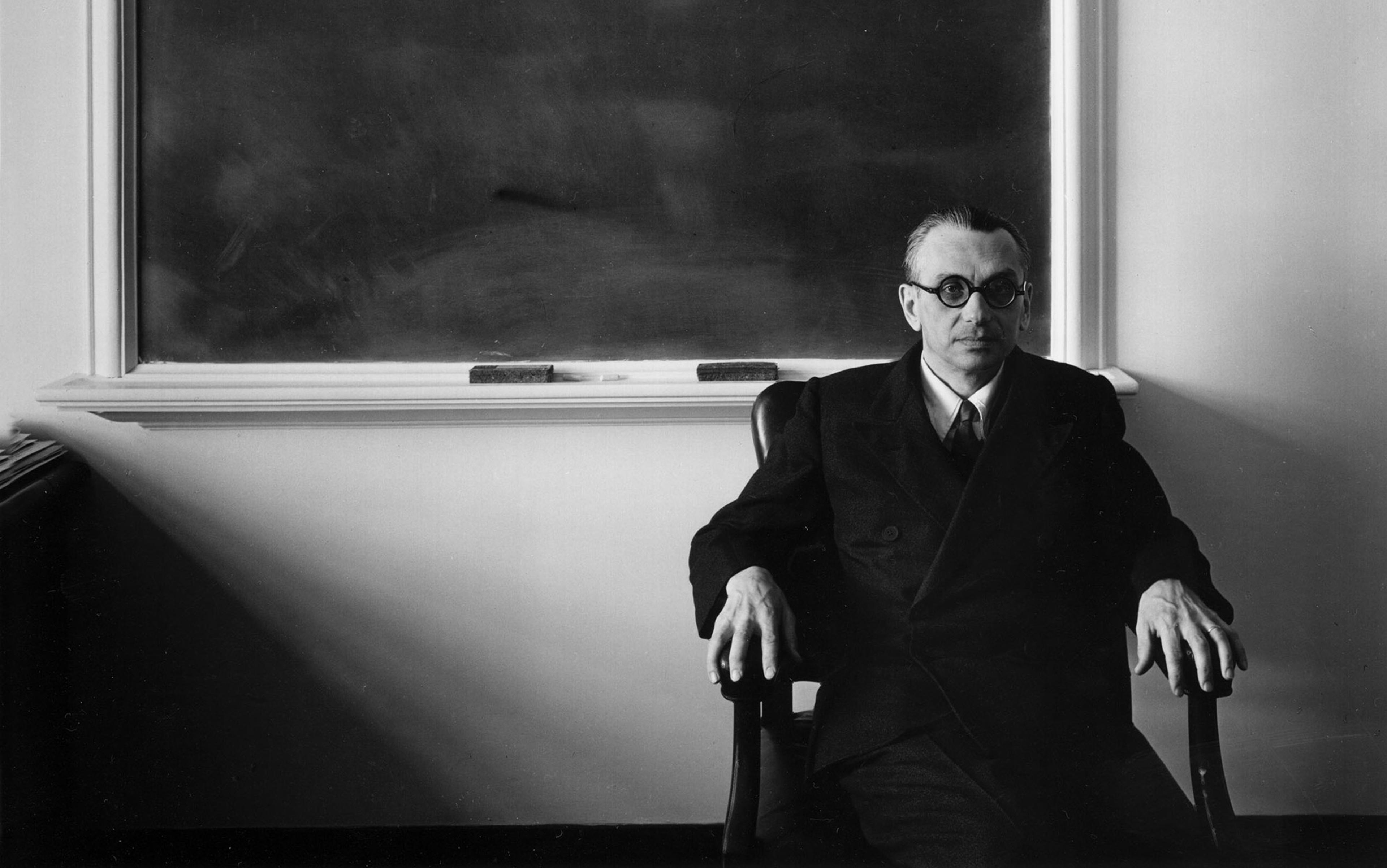‘There is nothing outside the text,’ wrote Jacques Derrida in 1967. Like most everything Derrida said, this notorious declaration becomes more difficult to interpret as one examines its context and the context of its context. But it aptly captures the flavour of academic philosophy at the time it appeared, which was also the year of Richard Rorty’s anthology The Linguistic Turn, which embodied an argument that the most important philosophy of the 20th century was linguistic philosophy. By then, everyone but a few reactionaries would have agreed with that assessment. Philosophy had for decades been relentlessly emphasising the nature of language (as opposed to, for example, the nature of reality, goodness or beauty). There was some dispute about whether there could be any genuine philosophical questions that were not questions about language.
Looking back on it from here, the convergence on questions of language – indeed, the relentless, almost-exclusive focus on it as central to our experience, by thinkers otherwise so different that they could not or did not care to enter into dialogue – seems remarkable. It is one of the signal aspects of 20th-century intellectual history and a useful lens through which to view the development of philosophy during that time.
In the 20th century, Western philosophy split into two discourses, each with its own canon and jargon, usually referred to as ‘analytic’ and ‘continental’. Mastering them simultaneously (getting a solid handle on both Martin Heidegger and Bertrand Russell, for example, or both Willard Van Orman Quine and Michel Foucault), was a very intimidating prospect, and few had the motivation. Almost certainly, if one was housed, one was housed in a department that did only one or the other. And almost certainly, whichever side the department was on, it was abusive toward the other. Analysts held that continental philosophy was not philosophy at all, but meaningless yet relativistic babble, something of substantially less than no value. Continentalists characterised analytic philosophy as useless punctilious logic-chopping and scientism for its own sake, with no possibility of cultural critique or even meaningful connection to human life as it is actually conducted.
It is not surprising, however, that the lines of discourse had more in common than the participants in the ridicule thought they did. Analytic and continental philosophy emerged at the same time in the Western academy, out of a shared intellectual history (the rationalists, empiricists and idealists, among others). The rivalry was as professional as it was conceptual, and the contest was always to see which side could get rid of the others’ professors. But in a thousand ways through the whole century, they were embedded in the same zeitgeist. They had a lot of the same obsessions, as well as a lot of the same drawbacks, even if, by 1967, they also had entirely different vocabularies.
Analytic and continental philosophy were obsessed with language, almost entirely absorbed by it by century’s end. And the motivation on both sides was somewhat similar: linguistic philosophy was going to cure the discipline of the woolly, possibly empty, merely speculative metaphysics of the 19th century, the grand systems of people like G W F Hegel, Friedrich Schelling or Arthur Schopenhauer. Turning from the direction of all history or the nature of all Being itself, 20th-century philosophers tended to focus on the meaning of phrases like ‘the nature of all Being itself’. When they did, many concluded that such phrases were without significance, or were being terribly misused, and that philosophy would be better off trying to clarify the nature of language, which seemed quite a bit more likely to pay off.
The linguistic turn was a response to a professional and intellectual crisis that persisted from around 1890 to 1910. Elaborations of Hegelian and Kantian idealism had dominated the field for the better part of a century, and the ‘systems’ seemed to be getting ever-more elaborate, incomprehensible and inapplicable in any other discipline, particularly in the sciences. For, in comparison with the notably rapid developments in several empirical sciences of that era, philosophy seemed to be stuck elaborating old ideas of dubious relevance and even comprehensibility.
Take the analytic side first. Its basic thrust, as articulated by Russell and G E Moore early in the century, was to address and eliminate philosophical problems by analysing the language in which they were couched, a strategy that both men felt was crystallised in their student/colleague Ludwig Wittgenstein’s Tractatus Logico-Philosophicus (1921). The project of that fundamental turning-point was to clarify the limits of meaningful language. Moore, for one, didn’t try to explain the meaning of existence, but the meaning of the word ‘existence’, which he held was not a genuine predicate. He didn’t try to tell us what particular things there were, but what ‘particular’ meant, with extreme punctilious care. The conversation moved from the nature of the self to the meaning of ‘I’.
Almost all previous philosophy was literally nonsense, like ‘All mimsy were the borogoves’ but less amusing
Just as Russell and Moore hoped, this emphasis, and accompanying advancements in logic, revitalised the discipline to a significant extent and enhanced its academic respectability, setting off a discourse and a style of thinking and writing that dominated universities in the UK and the US for most of the century. And, while it may at times have descended into useless technicality, the reconstituted discipline succeeded in defining an expertise and constraining thinkers methodologically from sheer flights of fancy (to some extent). ‘All genuine problems are at least theoretically capable of being solved,’ said the positivist philosopher A J Ayer in 1936. But most philosophical problems, he thought, were pseudo-problems, to be dissolved by close examination of the language in which they were couched. ‘Such a metaphysical pseudo-proposition as “the Absolute enters into, but is itself incapable of, evolution and progress”,’ he thought, had ‘no literal significance’, even for the person who uttered it, because it could not possibly be verified by observation or experiment.
Ayer said he plucked that sentence about the Absolute randomly from the writings of one of the most typical and dominant late 19th-century British philosophers, F H Bradley. He was asserting that almost all previous philosophy was literally nonsense, like ‘All mimsy were the borogoves’ but less amusing. And Ayer was saying that, if philosophy was to have any respectable, useful or well-defined subject matter, it would be found in the nature and function of language, not the nature and function of reality.
‘Esse is percipi,’ wrote the empiricist metaphysician George Berkeley around 1710: ‘To be is to be perceived.’ For something to exist or be real, for Berkeley and for many others (Immanuel Kant, for example), was for it to play certain roles in human perception or to correspond to our mental imagery. In a tribute to that style of metaphysics and a parody of it, in 1939 Quine said that ‘to be is to be the value of a variable.’ Now, Quine took himself to be ridiculing the grand pronouncements of metaphysics. But it was hard not to hear that ‘bound variable’ stuff as itself an ontological theory according to which existence is dependent on language: to be was to be picked out by the ‘something’ in sentences like ‘there is something that’s tall and green’ (or, in the language of logic, (∃x)(Fx&Gx), in which the existential quantifier binds the variable ‘x’).
Nelson Goodman, a colleague of Quine’s at Harvard, summarised the approach in his book Ways of Worldmaking (1978):
If I ask about the world, you can offer to tell me how it is under one or more frames of reference; but if I insist that you tell me how it is apart from all frames, what can you say? We are confined to describing whatever is described. Our universe, so to speak, consists of these ways rather than of a world.
Countless philosophical problems, Goodman and others argued, had been manufactured by the alleged distinction between the world and our ways of describing it. We could make do with the latter, they thought, or really we had no choice until we could leave our own minds. Rorty summarised the developments by the early 1970s as ‘the world well lost’. Now we could talk about words instead.
As analysis developed, so did the motivation for it. In the later Wittgenstein, for example, the centrality of language to human experience and culture becomes an explicit theme, and the project of shedding light on it gains a more intrinsic motivation. It’s no longer primarily a matter of destroying 19th-century philosophy, but of showing the bases of human culture and communication.
‘To imagine a language means to imagine a form of life,’ Wittgenstein declared in Philosophical Investigations at mid-century, and to analyse a language is to analyse a form of life: a personality and a culture. By the time Rorty’s The Linguistic Turn was published, assembling the first potent narrative of this intellectual history, it was obvious to everyone, whether they liked it or not, that the nature of language and the detailed analysis of its functioning (as in ‘the ordinary language’ philosophy of J L Austin and others, or the linguistic metaphysics of Saul Kripke and David Lewis) was the central arena of 20th-century philosophy.
In his introduction, Rorty wrote:
The purpose of the present volume is to provide materials for reflection on the most recent philosophical revolution, that of linguistic philosophy. I shall mean by ‘linguistic philosophy’ the view that philosophical problems are problems which may be solved (or dissolved) either by reforming language, or by understanding more about the language we presently use. This view is considered by many of its proponents to be the most important philosophical discovery of our time, and, indeed, of the ages.
As developed in the work of Donald Davidson and Rorty himself, for example, ideas like Quine’s and Wittgenstein’s moved toward what came to be thought of as ‘postmodernism’, which had been developing for some time in Europe. It conceived our experience and our world as linguistically constructed. Admittedly, many figures would resist that formulation, or any of these labels. But as shown specifically by Rorty, Richard Bernstein and Charles Taylor, for example, the analytic and continental traditions, with little mutual awareness, were by 1985 beginning to coincide in some of their conclusions.
If the world and we are texts, maybe we are more like modernist poetry than like classical drama
Let’s turn now to the continental side. Though he also bristled with hostility toward ‘metaphysics’, Heidegger held that ‘It is in language that things first come to be and are.’ Here is his definition of the human:
Man shows himself as the entity which talks. This does not signify that the possibility of vocal utterance is peculiar to him, but rather that he is the entity which is such as to discover the world and [himself].
Now, that’s not the sort of thing that Quine would say, and it’s not the sort of sentence that Ayer would regard as meaningful. But it centralises language as relentlessly as they do. And, as much as theirs did, Heidegger’s approach to philosophy of language set off decades of discourse.
Heidegger developed these thoughts elaborately in later writings, such as On the Way to Language (1959). One interpretation of them makes language the fundamental bottom line of human experience and reality. This was probably expressed most clearly in the ‘hermeneutical’ philosophy of Heidegger’s student – and Rorty’s hero – Hans-Georg Gadamer. The word ‘hermeneutics’ originally referred to the discipline of textual interpretation, especially of the Bible, and late 20th-century continental philosophy hinted that it should be philosophy’s successor.
‘Language is the fundamental mode of operation of our being-in-the-world and the all-embracing form of the constitution of the world,’ wrote Gadamer in 1976:
In all our knowledge of ourselves and in all knowledge of the world, we are always already encompassed by the language that is our own. We grow up, and we become acquainted with men and in the last analysis with ourselves when we learn to speak … In truth we are always already at home in language.
Now, again, this is not the mood, tone or doctrine of any analytic philosopher. But it might motivate a similarly intense and detailed look at how language functions.
Indeed, in many ways, the ‘deconstruction’ of language in Derrida and his ilk closely follows Heidegger and Gadamer, while also slyly blowing up the latters’ pretensions. Yes, Derrida says, we are linguistic creatures all the way down. Our language in some sense gives us, or is, our reality; language is our mode of access to the Universe and ourselves, or the way we construct or reveal them. Literary interpretation is a good analogy for human experience as a whole, for both are interpretive activities performed with signs.
But terrifying problems arise, Derrida points out. If we thought of the experience of the world as analogous to the act of reading, as in hermeneutics, we’d have to acknowledge that the act of reading produces delusion as frequently as truth. We’d have to acknowledge that every text that we can understand is liable to be fraught with obscurities or even contradictions. A lot of the literature of the 20th century played with ambiguity, surrealism, obscurity: if the world and we are texts, maybe we are more like modernist poetry than like classical drama, more like a novel by James Joyce than one by Jane Austen. Maybe we are trapped in a situation that we can’t get far enough outside of even to see.
The ‘postmodern’ moment, especially the French versions of figures such as Foucault and Gilles Deleuze, began to focus on the ways that the linguistic construction of reality, a structure without foundations, is ‘always already’ collapsing. Jean Lyotard argued that all legitimising master narratives had already broken down, and that the era couldn’t make a coherent language for itself. Jean Baudrillard argued that the appearance/reality distinction had only a fictional or ideological resonance by 1980, and that we lived in a world of signs that signified nothing, a Disney World that encompassed all of ‘reality’. Toward century’s close, others explored more positive postmodern modes.
One of these was the focus on the concept of narrative, or story, by a number of figures, such as Paul Ricoeur and Alasdair MacIntyre. Narrative theory in psychology, history, and ethics – among other applications – centralised one particular linguistic mode, storytelling, as central to the construction of personality, culture and reality, and as central as well as to value theory. ‘Life itself [is] a cloth woven of stories told,’ wrote Ricoeur in the third volume of his magisterial Time and Narrative (1984). This theory of the human was very popular: even Nike got onboard with their slogan ‘We are the stories we tell.’
‘Temporality … requires the mediation of the indirect discourse of narration … There can be no thought about time without narrated time,’ Ricoeur asserted, and he used the concept to explain personal identity as well. ‘What justifies our taking the subject of an action, so designated by his, her, or its proper name, as the same throughout a life that stretches from birth to death? The answer has to be narrative,’ he wrote. Narrative for many late 20th-century figures provided a ground for psychology, ethics, and metaphysics. It explained simultaneously the nature of human identity and the nature of the world we inhabit together, rather as ‘God’ or ‘nature’ had done for previous thinkers.
Their notion that everyone experienced the world as though reading a book seemed an artefact of privilege
This sort of narrative theory was one version of what, by late in the century, in the work of influential philosophers such as Rorty and Taylor, came to be known as linguistic or social constructionism: the picture of a world made in significant measure by words. It had hopeful or benevolent political implications: a world that has been constructed by us can be reconstructed by us. We could make a better social world by focusing on, revealing, critiquing and reforming our languages. ‘To study persons is to study beings who only exist in, or are partly constituted by, a certain language,’ wrote Taylor in his fundamental book Sources of the Self (1989). ‘There is no way we could be inducted into personhood except by being initiated into a language.’
In Rorty and Taylor, Bernstein and MacIntyre, the commonalities between analytic and continental philosophy, and the ocean-straddling postmodern mood, came to be self-conscious, to put it mildly. In them, at any rate, if not at meetings of the American Philosophical Association, analytic and continental philosophy converged. Both sides could argue about Noam Chomsky, for example, or developments in speech act theory. Even if few worked directly across the border, the wall began to seem more like a fence. You could see through it here and there, and imagine climbing over.
But, by the same token, the questions they raised and the conflicts they prosecuted began to seem less urgent. A turn away from the linguistic turn began. Perhaps the questions that appeared urgent early in the 20th century had by its end, to whatever extent they ever would be, been answered or abandoned. I’m not sure how much deeper or more sophisticated the philosophical treatment of language can go than it had gone by the 1970s on both sides of the water. Perhaps linguistic philosophy and narrative theory had become as overly refined by 1999 as German Idealism was in 1899, and its relevance as questionable.
In the new millennium, to take one example of the transformed terrain, environmental issues came to be central in a way that seemed to render linguistic constructionism irrelevant or seemed simply to suggest its falsity. Though discourse has many roles in helping create carbon emissions, for example, it’s the material interactions of particles, whether known or unknown to anyone, narrated or not, that is the heart of the problem. Any philosophy that seemed to undermine the reality of the natural world, or make it a malleable human artefact, has come to feel potentially destructive. Indeed, scholars’ obsession with linguistic interpretation, their notion that everyone has always experienced the world as though reading a book, came to seem at a certain point to be an artefact of privilege, as well as fundamentally implausible.
And we are no longer a planet awash in newsprint, but a world of imagery and image-text hybrids of sorts not covered in the Tractatus. We seem to be more concerned right now about whether we’re living in a virtual reality than whether we’re living in a text. That all sorts of new questions have arisen, however, demands new reflection, but also makes possible new histories. As Hegel observed, you can’t really tell the story of something until it starts winding down.
Crispin Sartwell’s most recent book is Beauty: A Quick Immersion (2022).






